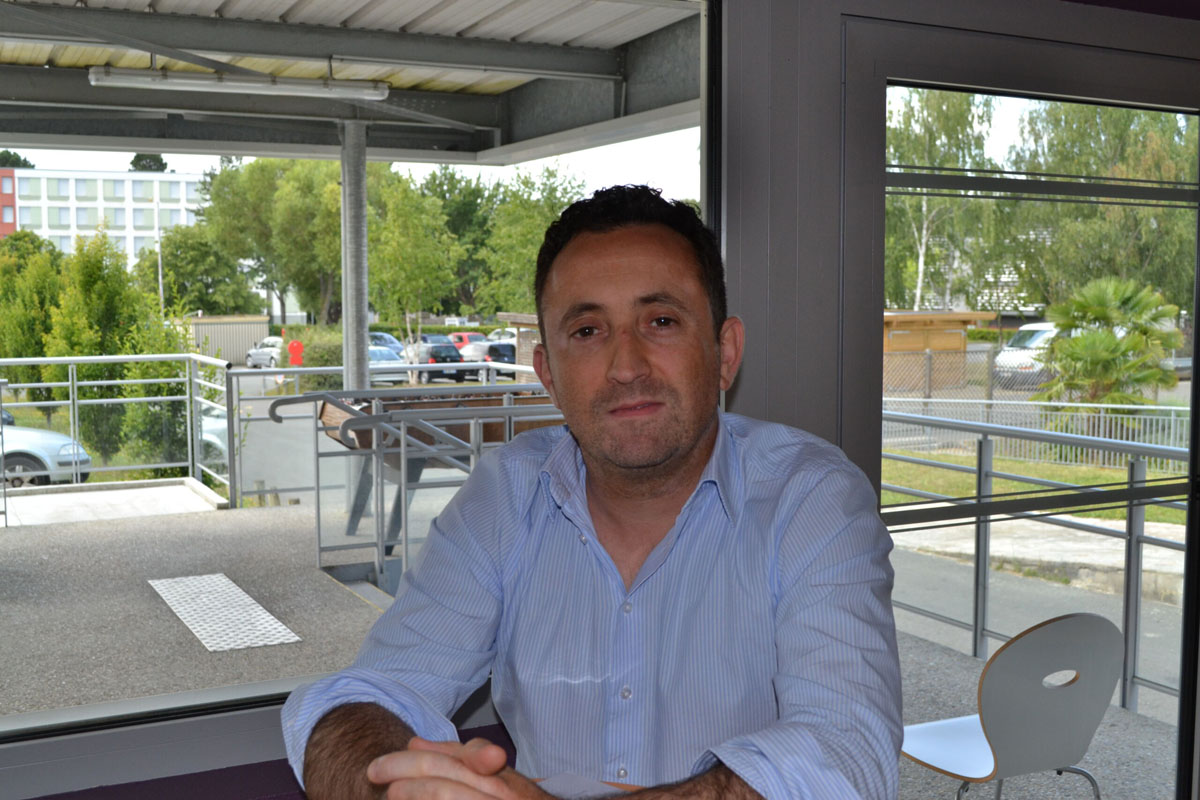Mindfulness education - Portrait of Stéphane Justeau
A little-recognized angle of higher education in France, pedagogy is the leitmotiv of Professor Stéphane Justeau. The director of the Institut de Pédagogie Avancée at Angers business school ESSCA took part in a CSIP MUSE workshop workshop focusing on student attention.
A few minutes of meditation at the beginning and end of each class. This is not the practice of a Californian yoga center, but of a classroom at the École supérieure des sciences commerciales d'Angers (ESSCA). The classroom of Professor Stéphane Justeau, director of the school's Institut de Pédagogie Avancée. The dean of the faculty came to present mindfulness meditation in a workshop on "muscling student attention" offered by MUSE's Centre de soutien aux innovations pédagogiques (CSIP) in mid-December 2020. " This unconventional intervention fits in with our strategy of favoring experimental approaches," explains Patrizia Tavormina, pedagogical engineer at the CSIP, " but I must admit I was a little worried about how the invitation to meditate with one's students would be received by the participating teachers.
A compulsory certificate
" In addition to the lack of pedagogical training, teaching is not valued among Professors," laments Stéphane Justeau. Peers and the institution in general recognize a good publication, but not a good course. It's a state of affairs that the economist found very disturbing from the outset. Especially as a culture of pedagogy exists elsewhere, particularly in Anglo-Saxon countries. In the UK, a teaching certificate is compulsory to teach in higher education," explains the ESSCA professor. This is changing very gradually in France, with doctoral schools beginning to offer pedagogy courses to their doctoral students . "
He quickly discovered that he had a talent for teaching, as soon as he started working as a PhD student at the university. Especially as his research into the impact of migratory flows on wages and employment complicated his relations with certain colleagues. " They accused me of being reactionary, when in fact I wanted to provide scientific evidence on these issues. It was a trial of intent that was difficult to live with ", he recounts. In 1998, with his doctorate in economics in hand, he was offered aProfessor at ESSCA. His affinity for teaching was confirmed: " I've always enjoyed explaining, passing on information, but also interacting with young people.
Quickly appointed head of the department - where he coordinates teaching in economics, law and mathematics - he has a front-row seat to hear his colleagues' complaints about students who are "not as good as they used to be", "unable to concentrate" and so on. Complaints that exasperate him, prompting him to open his classroom to them and share his practice " which was already working rather well ", he says with discreet satisfaction.
Students want more
Gradually, his commitment to teaching earned him an offer from the management to head up a teaching center within the school. He left to train at the Lausanne teaching center, a benchmark in Europe. A herald of pedagogy at his school, he returns to take on his new missions. Training in pedagogy, particularly online, but also offering individualized pedagogical advice. On the subject of distance learning, he comments in passing on " the fantastic opportunities, particularly thanks to international openings. But it's certainly not the teaching of the future, because it lacks the socio-affective dimension that is essential to learning ".
A dimension he embraces in his teaching. For him, the teacher's grail is to capture students' attention: " It's a fundamental pillar. Without it, there can be no learning. A challenge in the age of connected objects and social networks, where attention is constantly on demand. Since meditation is recognized in scientific literature as a way of improving attention, he decided to try it out in class (seearticle). " Mindfulness meditation is listed in the Vidal, the doctors' bible ", points out the man who doesn't want to be seen as a crank.
The first step isn't easy," he confides. At a time when aesthetics are all about efficiency and speed, it's hard to convince students to close their eyes and listen to their breathing. But the practice was well received, and his students kept coming back for more. And he pushes experimentation further by sharing it in his teaching courses, which he organizes around exchanges of practice.
Participating in the MUSE workshop, Laurence Weil, professor at Montpellier's Faculty of Law, makes no secret of her incredulity: "This proposal seemed incredible to me, as if it had come out of a parallel world or the 22nd century. There's also a kind of shamelessness about entering the intimacy of young people, which is very anachronistic with the times. But at the same time, it encourages me to reflect on my practice, to open up horizons that re-enchant our profession!
